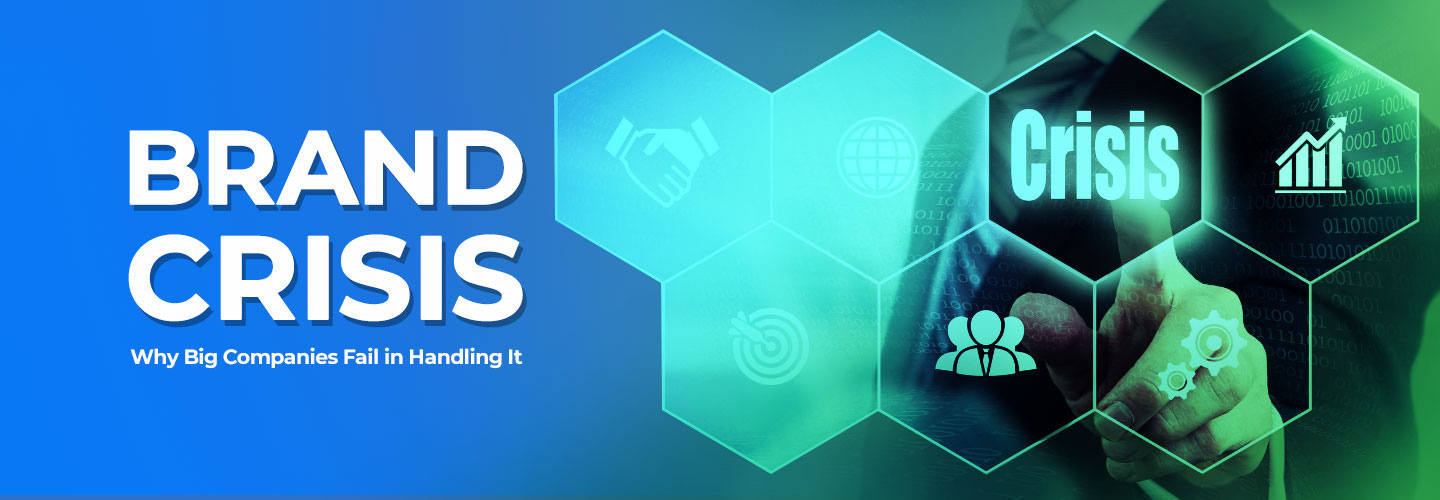Brand Crisis; Why Big Companies Fail in Handling It

Brand Crisis
A brand crisis is a significant and often unexpected event or situation that threatens the reputation, integrity, and value of a brand. It can result from various factors, including product recalls, public relations issues, negative publicity, ethical concerns, or even external events beyond a company's control. Brand crises have the potential to severely damage a company's image and financial performance, making them a critical concern for businesses in today's interconnected and highly scrutinized world.
An effective response to a brand crisis involves acknowledging the issue, taking responsibility, and outlining corrective actions. Companies must also communicate openly with stakeholders and demonstrate their commitment to resolving the problem.
The Failure
Effective crisis management is pivotal in safeguarding a brand's reputation, especially when faced with controversies or conflicts. The repercussions of mishandling a crisis can be severe and enduring. An illustrative instance of crisis management gone awry can be observed in the companies entangled in boycotts due to their perceived connection with or support for political conflict related to humanitarian issues.
Amid escalating tensions between involved parties, companies inadvertently drawn into the turmoil found themselves in a precarious position. While they were essentially bystanders to the conflict, their failure to respond adequately exacerbated the situation. Instead of proactively addressing concerns and engaging in open, empathetic dialogues with their stakeholders, many opted for silence or issued generic, insincere statements.
This ineffective crisis management strategy triggered a substantial decline in brand reputation and customer loyalty. While the specific failures of each company may vary, some common principles of crisis management can shed light on their shortcomings. In the context of a boycott movement, it becomes evident that certain companies faltered in disseminating their response and strategic actions to address the crisis. As seen in our history with conflict related to humanity for instance, direct conflicts with customer beliefs can make mitigation complex. Brands need to tread carefully and adapt to customer expectations while maintaining transparency to effectively manage such crises. Moreover, This lack of transparent communication not only led to a dip in customer’s perception and belief but also eroded confidence in the company's ability to handle the crisis competently.
How To Navigate The Storm
Navigating brand crisis management using the principles of "Listen, Measure, Talk, and Engage" is a proactive and strategic approach to address and mitigate brand crises effectively.
LISTEN
Using Social Media Monitoring & Customer Feedback: Pay attention to customer feedback, both positive and negative. Regularly monitor social media platforms, news
outlets, and online communities to identify any emerging issues related to the brand. Social media is just a tool, what matters the most is the brand listens carefully to your audience’s desire.
MEASURE
Benchmarking & Stakeholder Perception: Compare your brand's performance and reputation before and during the crisis. Establish benchmarks to assess the extent of damage and track improvements over time. Also, assess how various stakeholders perceive the crisis. You can conduct mini-surveys, focus groups, or interviews or just look into the social media listening data to understand the concerns and expectations.
TALK
Transparency & Consistent Messaging: Transparency builds trust. Be transparent and honest when communicating with stakeholders. Acknowledge the crisis, provide information about its causes, and share your plan for addressing it. Ensure that all communication channels, from press releases to social media updates, convey consistent messages. Inconsistencies can create confusion and damage credibility.
ENGAGE
Two-Way Communication & Rebuilding Trust: Encourage two-way communication by actively listening to feedback and suggestions from stakeholders. This engagement can help shape your crisis response and recovery efforts. After the initial crisis, focus on rebuilding trust with your stakeholders. Show your commitment to learning from the crisis, making improvements, and preventing similar issues in the future
Brand crisis is a critical aspect of modern marketing and business management. Companies that are well-prepared and respond effectively to brand crises can often emerge from these challenges with their reputation intact or even strengthened.